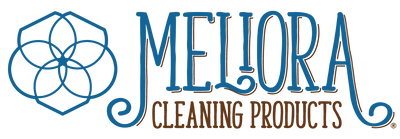This spring semester, Kate and I had the chance to teach Social Entrepreneurship at the Stuart School of Business at Illinois Tech here in Chicago. Our class of 35 future public- and private-sector business leaders got a mix of classroom and on-the-job teaching of how business isn't only about making money - it can also be about making a sustainable impact on the communities around us.
Turns out that when you teach, you tend to learn a few things along the way!

Obligatory "First Day of School" Professor Selfie. Not Shown: 35 Students, Eager to Learn
What We Taught Our Students
Part of the class was highlighting how important it is to measure the impact a business has. While we showed them several tools, our focus was on the B Impact Assessment, the same assessment every Certified B Corp has to pass. Students reviewed the assessment for our business, and identified areas where Meliora Cleaning Products can improve its impact (and Assessment score) when we re-certify next year.
Throughout the semester, we asked our students to look at the world around them for "social problems" - areas where the people and planet around them needed someone to step in and lend a hand. Each student developed their own "business solution" in the terms of a business plan on how they would use business as a tool to solve the problems around us every day.
A Triple-Bottom-Line Approach to Business is New to Nearly Everyone
In a class of 35 students - including MBA and MPA students - almost no one had heard of the concept of a triple bottom line. For those that don't know, it means that a business accounts for its net impact not just in terms of Profit, but also it's impact on the community (People) and environment (Planet) it operates in. Concepts like paying a living wage - instead of minimum wage - were brand new to everyone. "I never thought of it like that" was heard on more than a few occasions.
Graduating MBA candidates came up to us at the end of the semester telling us:
- The ideas in this class should be required for every MBA candidate, not just available as an elective.
- They learned more in this class than their "capstone" (final) class. Tools and ideas they learned were directly applied to these final projects.
How can we expect our Fortune 500 companies to adopt these ideas if we aren't teaching tomorrow's leaders such tools and ideas exist?
The Resources to Teach and Learn Are EVERYWHERE
As first-time professors (yikes), we were given a virtually blank slate for what to teach our class (double yikes). That meant we could pick what books, articles, and cases our students read. Fun fact: there's a LOT of amazing writers and resources out there to help anyone learn new ways to think about our impact on the world around us.
We had our students read 2 amazing books as a focus for the course:
- Cradle to Cradle: Remaking the Way We Make Things, by Michael Braungart and William McDonough. A classic in the world of closed-loop product development.
- Doughnut Economics: Seven Ways to Think Like a 21st-Century Economist, by Kate Raworth.
A Triple-Bottom-Line Works for Any Industry, Anywhere in the World
35 students wrote 35 excellent business plans on how they, as individuals and business leaders, could make a difference by solving a problem that mattered to them. The only requirement was solving a problem with our triple-bottom-line approach. Other than that, they had no rules.
Everything from yak shepherding on the plateaus of western China to financial services to help relieve the student debt challenges in the U.S. can be changed - and measured - to make a positive impact on our communities. I'd list all the ideas around the food service and restaurants, but just the fact that nearly a third of the class realized we can do better with delivering healthy food to so many people who don't have access should be enough to realize this problem isn't a secret.
We Can Do More. We Must Do More
The first step is to look at what we, as individuals do on a daily basis and say "I can do better." The next step is realize we're a part of a greater community and "we can do better together." If 35 future business leaders from 6 countries can take that concept from just 1 class, imaging what we could do with 35,000.

